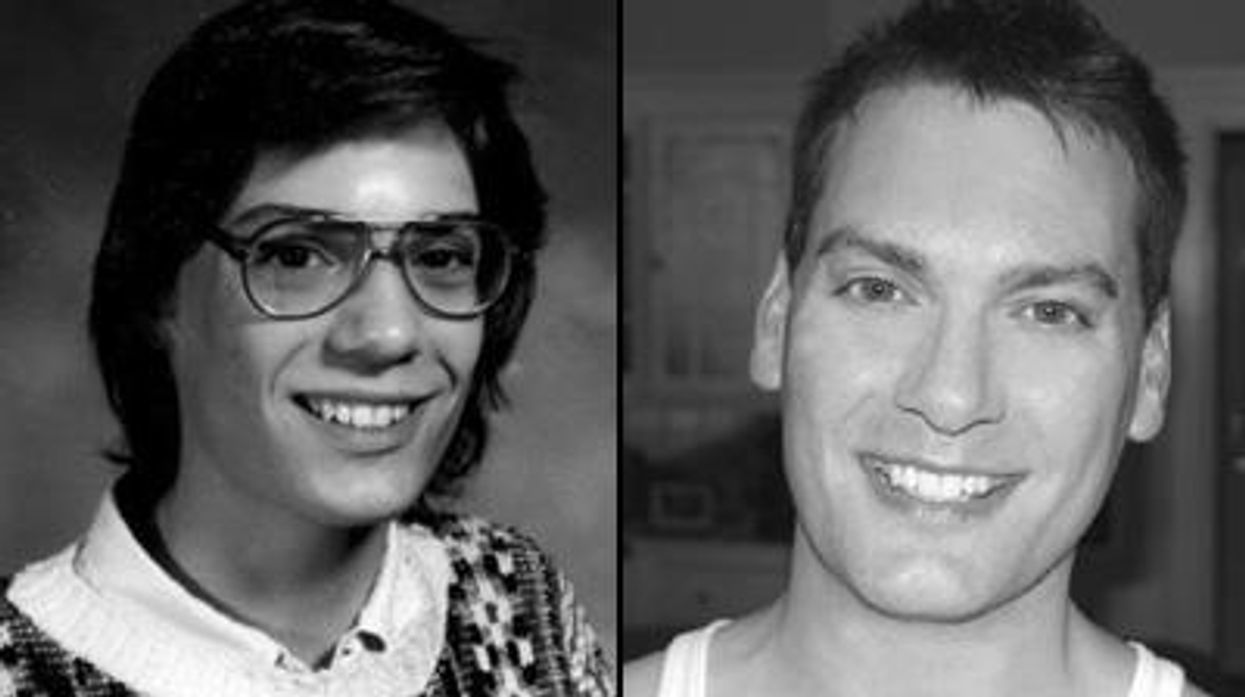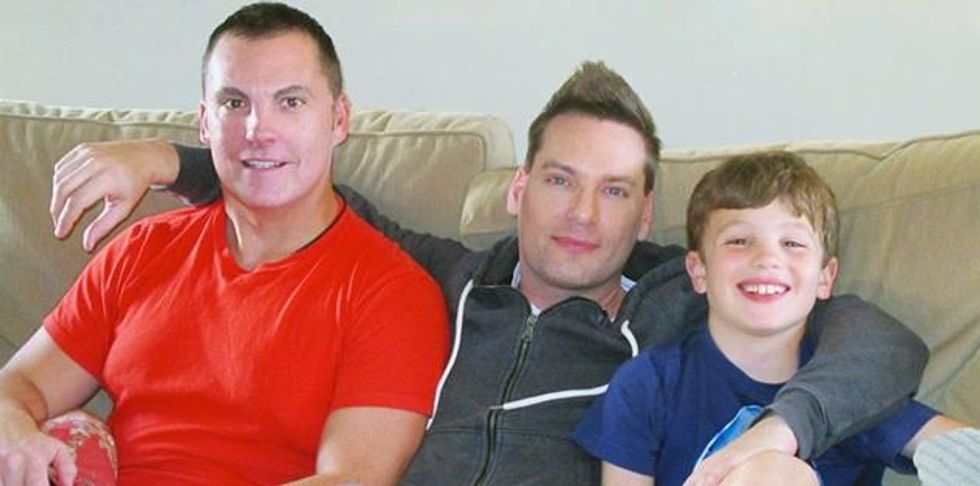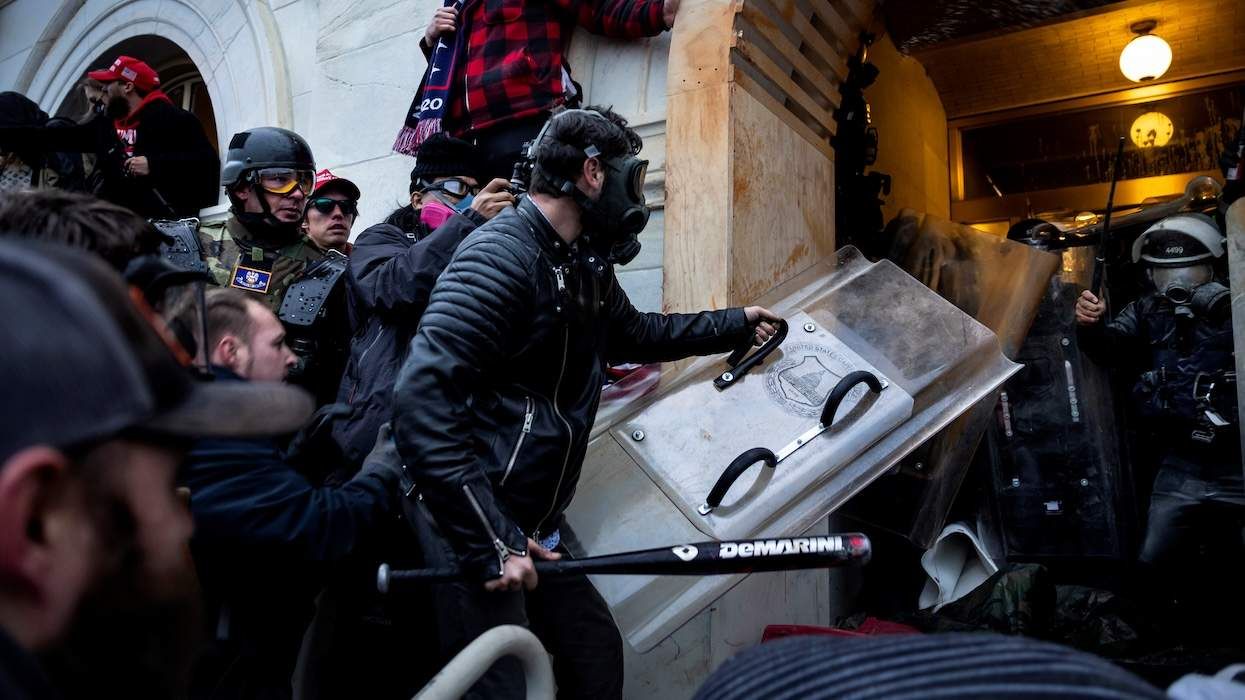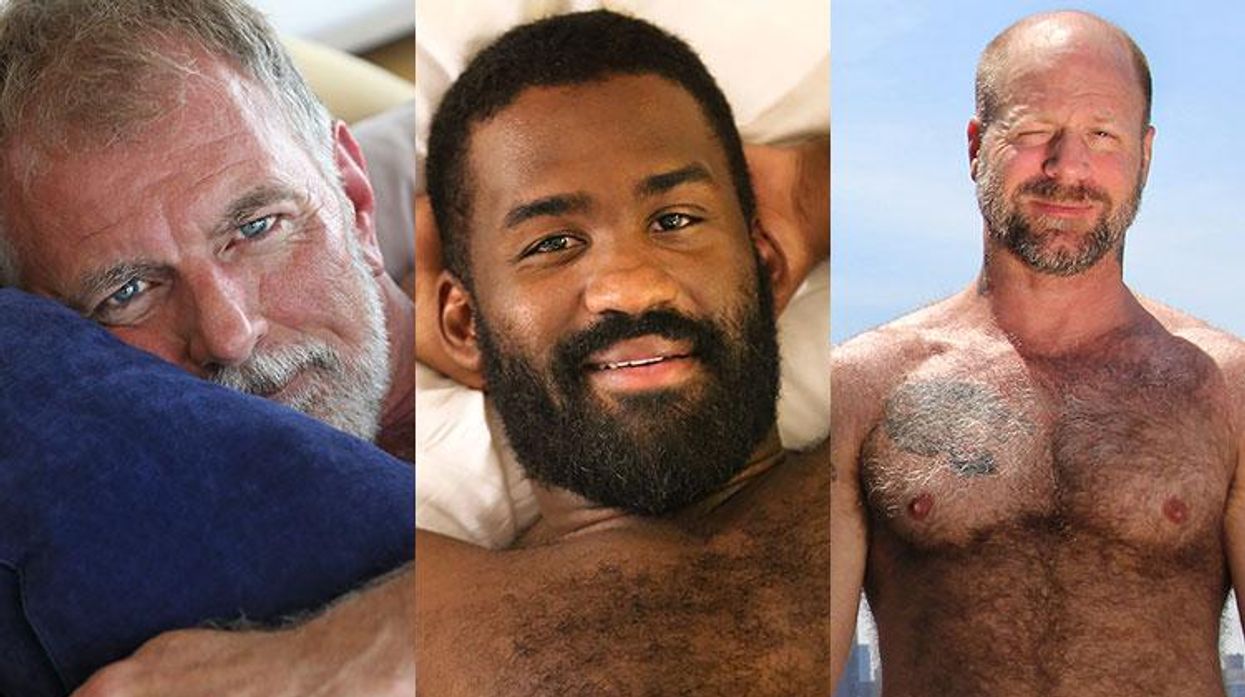LGBT people know rejection -- from family, or misguided friends, or our government. The It Gets Better campaign, for example, is about relating via our survival stories. But one man is sharing what happened to him because it shows the sometimes surprisingly boundless nature of perseverance.
It was 1990 when Neil told his mother he was gay. But rather than accept him, she kicked her 16-year-old son out of the only home he'd ever known in Chicopee, Mass.
"She was going through a divorce from my stepfather at the time and she wasn't in a good place," Neil says. "My father left our family when I was very young, and with her second marriage failing at the time, I don't think she could handle having a gay son too."
Finding himself cut off from his family, Neil turned to the only person he could for help, a man named Dean he'd been dating for only a few short months. Dean was also 11 years his senior. "There wasn't a lot of support for gay teens back then," Neil says. "I didn't have any idea where else to turn, so I moved in with my boyfriend."
As difficult as it was to be kicked out of his home and shunned by his family, Neil's life was about to take a turn for the worse. Almost immediately after Neil moved in, Dean became both physically and emotionally abusive.
"I was young and naive," he recalls. "I didn't know people could be like that. He would put me down, make me feel worthless, and beat me up quite a bit. I was pretty isolated from gay culture back then too, and he made sure it stayed that way." Feeling like he had no other option, Neil stayed with Dean and tried his best to make their relationship work.
As months became years, the two began building a life together, and eventually started a successful business selling antiques. "I was very proud of the life I had built because I was a high school dropout," he says. "But although I felt like it was successful, I was also very unhappy because my relationship was unhealthy."
By the time Neil turned 26, he knew he had to escape his abusive relationship, but was unsure how to untangle himself from the man with whom his life was intertwined.
"One day, in November of 2000, I came in the house after work and he started reeling into me, calling me names and putting me down. He was drinking heavily by that point," Neil recalls. "I don't know what came over me, but I snapped and said 'I'm done. I want out. You can have everything. I just want to walk away and start a new life'."
Dean attacked Neil, beating him so severely that he ended up in the hospital with a cracked skull, broken ribs, and a broken arm. "When I told the doctor I was going to go back home he grabbed a mirror, held it up to my face and told me to look at myself. When I saw what my boyfriend had done to me I just started crying because I didn't even recognize myself. That's when the doctor told me to leave and get out of that place. He gave me $500 and told me to disappear. So I got on a bus, went to Boston, found a park bench, and that's where I lived."
Over the following months, Neal struggled to survive on the streets as he used public restrooms to escape the bitter Boston winter, and dug through garbage cans for food. His 5'10" frame quickly withered to 120 pounds and he spent his 27th birthday alone and scared on the park bench he found the day he fled from his abusive boyfriend.
"It got to a point I thought I was going to die," remembers Neil. "After a few months on the street, I began to notice other homeless people, and how being homeless can literally drive you crazy. I was afraid I was beginning to go down that path, and I realized I had to get off the streets."
Desperate to survive, Neil called his mother from a payphone, hoping the woman who kicked him out of his home more than a decade earlier would have a change of heart. To his surprise, she welcomed him home. "I learned she was living in North Shore [Mass.,] with a new husband I hadn't even met," he says. "Thankfully they took me in and I stayed with them while I got healthy and got myself together."
Neil slowly began to improve, and soon landed a job working as a caterer at an advertising agency. "It was amazing because it was in one of the buildings I used to look at when I was homeless and I'd daydream about what it would be like to work there," he says.
Then something even more wonderful happened. A woman named Mary Ellen, who was the head of the company's project management department, was so impressed with Neil's upbeat attitude and friendly demeanor that she offered him the chance to work for her as a junior project manager.
"I didn't know what to say, so I was just honest," he recalls. "I told her I don't know anything about advertising. I'm a high school dropout, but I'm a hard worker, and she said, 'That sounds perfect.'"
As he accepted the position, Neil made a promise to himself that he would use the horrible experiences of his past to drive him forward rather than hold him down. He excelled at his new position, and was promoted shortly thereafter. His newfound sense of self and confidence translated to his personal life as well.
Above: A family photo of Paul, Neil, and Zach from 2013.
Neil went back to school, earned his G.E.D. and in 2004, met the man who would become his husband, Paul. The two connected instantly, and when Paul revealed he had a 10-month-old son from a previous marriage, Neil was even more enthralled.
"I immediately knew Paul was the person I wanted to spend the rest of my life with," says Neil. "And the moment I saw Zach, I knew I wanted to be a part of his life too."
As Neil and Paul's relationship blossomed, the two moved in together, and Neil soon found he had not only gained a partner, but a whole family. "I was always told I would never have children because I was gay," he says. "But even though Zach is not my biological child, he is still my son in every way. I've seen him take his first step, and heard him say his first word. I can't imagine not being there for any big moment in his life."
Four years later, when Zach's mother -- who shares joint custody with Paul -- moved to San Francisco, Neil and Paul decided to move as well, because they wanted their son to stay close with all of his parents. Once there, Neil quickly found another job as a project manager at an advertising agency, thanks to the years of experience he had building his career in Boston.
Neil's new family flourished in the City by the Bay as Zach began attending elementary school, spending alternating weeks between his mother's home the one Neil shares with Paul. "Sometimes it's strange to look at how far my life has come," says Neil. "I've gone from not being accepted as a gay teen, and feeling worthless in an abusive relationship, to having a successful career and a beautiful family."
Last year, Neil and Paul decided they would marry once their relationship could be legally recognized. And with the Supreme Court's recent rulings in favor of marriage equality, the couple is planning to officially tie the knot in October --exactly nine years after they met for the first time in Boston.
"With all I've been through I can't believe I'm going to get to legally marry the man I love," says Neil. "When I was at my lowest point, I never thought I'd get out of that dark place, but I did it and I never hid who I was."
In addition to his personal life, Neil continues to excel in his career. He is now the head of project management for an advertising agency in San Francisco, but he doesn't shy away from the horrible experiences of his past. Instead, has worked with several organizations, including the Gay Domestic Violence Project in Boston, to share his story in hopes of helping and inspiring others.
"I always say if my story can help just one person, that's good enough," he says. "We may not be able to control the things that happen in life, but we can control how we react to them. I really do believe we create our own destiny and if you believe in yourself, you can do anything you want in life."
















